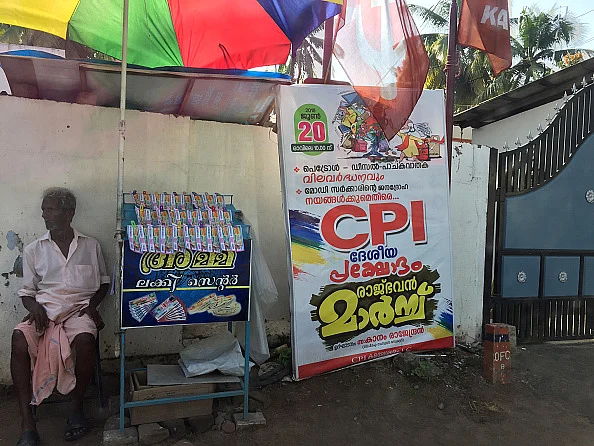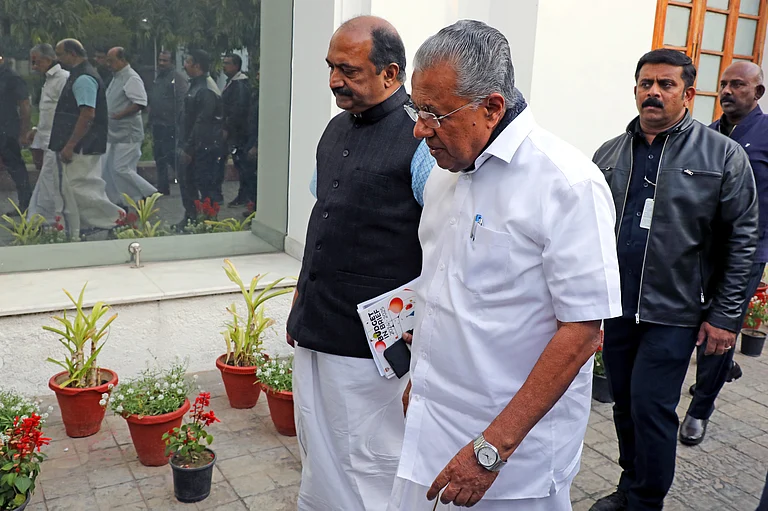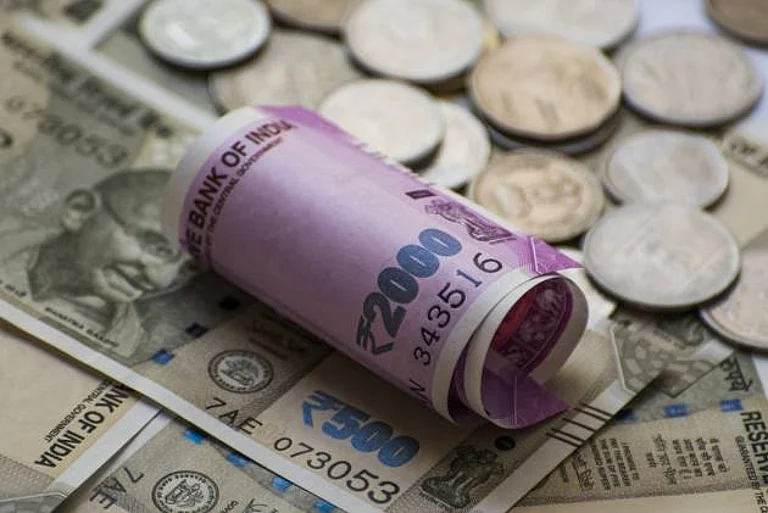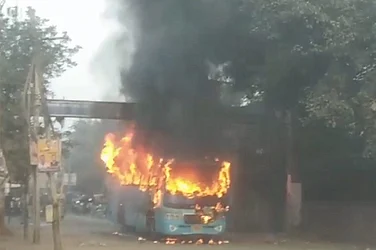It is a moment of triumph for both the LDF and the UDF in Kerala, who have engaged in a lengthy battle with Santiago Martin and other players in the lottery business, alleged to have caused substantial losses to the state exchequer through tax evasion. When Martin’s name emerged as one of the largest contributors to BJP through the electoral bond, the people of Kerala recalled how closely Martin was intertwined with the political landscape of the state.
The prolonged legal battles dating back to 2005 against unregulated lotteries from states like Sikkim and Meghalaya are still on-going. However, such lotteries, including those associated with Santiago Martin, nearly surrendered and ceased operations in the state. The defamation case filed by Martin against the former Finance Minister Dr. T M Thomas Isaac, who referred to him as ‘Lottery Mafia’ during a press conference in Delhi in 2012, goes on in the First Class Judicial Magistrate Court in Gangtok.
Lottery has been a contentious issue that stormed Kerala politics since 2004/05. The sale of unauthorised lotteries operated by private entities from other states has sparked significant debate. Allegations have surfaced claiming that lotteries managed by players from other states were siphoning off funds from Kerala through substantial tax evasion. Reports suggested that lotteries from Bhutan, Meghalaya, and Sikkim amassed crores of rupees from the state, yet no taxes were remitted to the state government.
It was also alleged that frequently, unsold tickets were declared as winners, allowing companies to pocket significant sums of money. Online lotteries originating from Kerala were also prevalent, many of which were subsidiaries of large companies headquartered in other states like Sikkim and Meghalaya. These online lotteries conducted daily lucky draws and became a social menace, prompting widespread protests led by the then opposition LDF. Opposition leader V S Achuthanandan vehemently protested against the online lottery business, likening it to a mesmerising trap that ensnared people like flies drawn to a flame. Consequently, the UDF Government in power issued an executive order in January 2005, banning online lotteries.
Apparently, the order was challenged in the court because the lottery was governed by the Central Act- the Lotteries Regulation Act 1998 according to which a State that runs its own lottery cannot prohibit selling of the lottery of another State.
Although online lotteries were banned, paper lotteries from other states continued to flourish in the market. Many of these lotteries were accused of flouting regulations, resulting in significant losses to the government in terms of tax revenue. In response, the Government of Kerala enacted the Kerala Tax on Paper Lotteries Act in 2005 to regulate such lotteries and bring them under the tax net. The act imposed a levy on each draw of these lotteries, which often occurred multiple times daily or even hourly. It also mandated that promoters selling these lotteries must register under this Act. However, the aggrieved parties, namely the lottery promoters, challenged this Act in court.
Returning to the topic of online lotteries, significant entities in the market, including the Government of Sikkim, petitioned the High Court of Kerala to contest the ban on online lotteries. The Kerala High Court rendered a decision affirming the government's stance. Subsequently, the petitioners took the matter to the Supreme Court, challenging Kerala's designation as an online lottery-free zone. Thus, the legal battle persisted at the highest judicial level.
Meanwhile, the UDF Government's tenure concluded, and the LDF Government, led by V S Achuthanandan, assumed power in 2006. The new government maintained the previous administration's policy and reaffirmed its stance in favour of banning online lotteries. Concurrently, the Kerala Government faced a significant setback in the legal dispute initiated by lottery operators regarding the imposition of levies on paper lotteries from other states. The Kerala High Court ruled in favour of the petitioners, holding that the provisions in the Paper Lotteries Act were not in tune with the Central Act of 1998. Imposing levy on draws was another form of imposing sales tax which was not tenable under the Central Act.
Consequently, the government had to pay an approximate amount of Rs 2000 crores, which it had received as levy on draws, to the respective parties. The State Government then appealed to the Supreme Court. This legal battle concluded in 2021, with the Supreme Court dismissing the demand raised by the lottery promoters to reclaim the money. This ruling brought immense relief to the government, freeing it from the substantial liability of reimbursing the money to the lottery promoters.
Returning to 2006, the dispute over the authority to operate paper lotteries by players from other states was on-going. Finance Minister Dr. Thomas Isaac expressed willingness to prohibit the state's own lottery if the law did not allow for the selective banning of lotteries run by external players. However, a complete ban on paper lotteries did not emerge as a viable option, given the thousands of people earning a livelihood by selling lotteries.
Shortly after assuming power in 2006, the LDF Government initiated a vigilance probe into the irregularities of the lottery business in the state. The investigations uncovered the illicit operations of Sikkim and Bhutan lotteries within Kerala, contravening the laws governing lottery activities nationwide. Revelations exposed a myriad of infractions, such as promoters conducting multiple draws under a single lottery, unauthorised printing of lottery tickets worth millions of rupees in unlicensed facilities for distribution within the state, and distributors exploiting the state through unauthorised sales, draws, and widespread tax evasion.
The Government changed in Kerala again. UDF came back to power in 2011, but the lottery battle and controversies around the same continued making tremendous impact in Kerala politics. It is pertinent to see that both the LDF and UDF Governments despite having political differences, never deviated from the basic policy of regulating the lotteries run by private players from other States and curbing corruption and thus stood by the larger interest of Kerala.
According to the petition filed by Dr. Thomas Isaac in the High Court of Sikkim in 2020 to quash the defamation case filed against him by Santiago Martín, the CBI had registered 30 cases against Martin and his close aides in 2011, allegedly for defrauding the Sikkim Government.
The petition states as follows ; “According to reports, the charge-sheet filed by the CBI, the Respondent [Respondent’s Company] had allegedly cheated the Sikkim government to the tune of Rs 4,500 crore by allegedly selling lottery tickets on behalf of the Sikkim government in Kerala from 2005, but not paying the full amount of the sales to them. This ‘lottery scandal’ kicked up quite a storm in Kerala, after which the United Democratic Front government banned the online sale of Sikkim lotteries in the state for two years. After its probe in 2014, the CBI reportedly claimed that the scam enabled ticket buyers to convert their black money into white.”
This 'lottery scandal' caused uproar in Kerala again, prompting the United Democratic Front government to ban the online sale of Sikkim lotteries in the state for two years. After its probe in 2014, the CBI reportedly claimed that the scam enabled ticket buyers to convert their black money into white. The cases filed by the CBI against Santiago Martin’s company are still on-going in respective courts. CAG reports referred to the irregularities in the lottery business conducted by him multiple times.
Returning to the banning of online lotteries in Kerala, the Supreme Court made a breakthrough in 2015 by upholding the State Government’s right to ban a particular type of lottery if it has legitimate concerns about people being exploited. The Supreme Court emphasised that it would not interfere unless there were compelling grounds. It sided with Kerala’s argument that single-digit lotteries and lotteries with multiple draws per week create opportunities for the exploitation of the poor masses – the fortune seekers – who invest a significant portion of their hard-earned money in such lucky draws.
Santiago Martin’s name stirred up a storm in Kerala politics again in 2012. The then opposition leader Oommen Chandy alleged that the LDF Government had caused a huge loss to the State exchequer – Rs 50,000 Cr – by allowing Santiago Martin to operate his lotteries in the State. Furthermore, another allegation surfaced against Deshabhimani daily, the mouthpiece of CPI M, claiming that the newspaper had received Rs 2 Crores as a donation from Santiago Martin. Faced with immense embarrassment, CPI M announced its intention to return the ‘questionable money’ to the Lottery King. Nevertheless, Santiago Martin’s name continued to reverberate in Kerala politics, persisting even now.
The second phase of the controversy over the ‘lottery politics’ began in 2016 when LDF returned to power in Kerala. With the advent of the GST regime, lotteries, once considered as an ‘actionable claim,’ were categorised as ‘Goods’ under the new tax system. This change allowed lotteries to be treated like any other goods, facilitating their movement across states. Seizing this opportunity, lottery players from other states made a strong comeback. In response, the Government of Kerala launched a vigorous crackdown, conducting numerous raids, seizing tons of unauthorized lottery tickets, and filing several cases. Kerala sought to counter the influx of lotteries from other States by leveraging certain provisions within the GST Act. Dr T M Thomas Isaac, the then Finance Minister, advocated in the GST council for imposing higher taxes on lotteries from other states. After extensive deliberations, the GST council acceded to Kerala’s demand and levied a 28 per cent tax on lotteries from other states, while Kerala itself paid only 12 per cent.
Santiago Martin and other players appealed to the Kolkata High Court against this decision by the GST council, but the court upheld the council’s ruling. “Instead of approaching the Supreme Court, they consistently exerted pressure on the council. According to Dr Thomas Isaac, the Union Government favoured the demand for equal tax rates for all states. In response, Kerala took a proactive step by demanding that if the tax rate were to be standardised, Kerala was prepared to pay 28 per cent. Although it would incur losses for the state, it was seen as the only way to counter the lotteries from other states. Their objective was to standardise the rate at 12 per cent, similar to Kerala’s,” says Gopakumar Mukundan, who served as the secretary to Dr Thomas Isaac during his tenure as Finance Minister. The dispute was put to vote in the council convened on December 18, 2019, during which the majority of states voted in favour of increasing the tax rate to 28 per cent.
Following this decision of the GST Council, the LDF Government implemented stringent regulations regarding the operation of lotteries, leveraging the authority vested in the state. “Our objective was to make the lottery business financially unsustainable for players from other states who held a monopoly in the industry, due to the high tax rates. Eventually, they would cease their operations and withdraw from Kerala," stated Gopakumar Mukundan.
However, the reaction was bitter. Santiago Martin lodged a defamation case under relevant sections of IPC with the Court of the First Class Judicial Magistrate, East at Gangtok against T M Thomas Isaac. This action was prompted by Isaac allegedly referring to him as the ‘Lottery Mafia’ in a press conference in Delhi in December 2019, followed by GST Council’s decision to make the tax rate uniform at 28 per cent.
Several cases against Santiago Martin are currently pending in various courts. Litigations between the Government of Kerala and lottery promoters from other states have also not reached a conclusion; several cases are still awaiting hearings. However, the unregulated proliferation of lotteries, with numerous daily draws fostering addiction to fortune-seeking, has been curtailed in Kerala through the concerted efforts of both the LDF and UDF governments, which alternated in power.




























